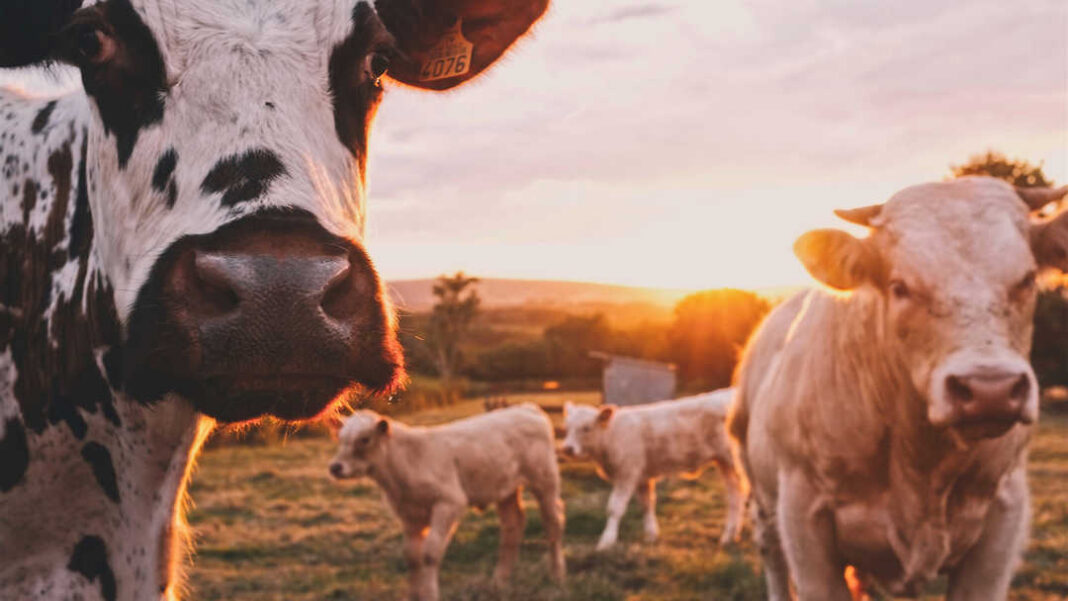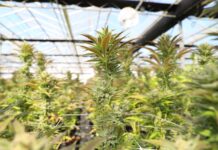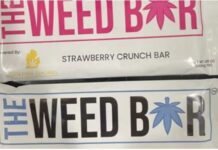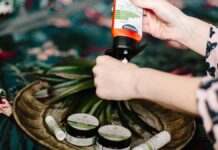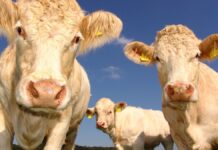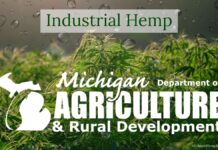Industrial Hemp News From the Michigan Department of Agriculture and Rural Development.
Manufacturers and distributors of commercial feed and feed ingredients intended to be used as animal feeds, including pet foods, are regulated by MDARD’s Pesticide and Plant Pest Management Division, Animal Feed Safety and Agriculture Products Section. The Feed Safety Program ensures livestock and pet foods are safe, nutritious, and labeled correctly for the intended species of animal being fed.
Program staff review product labels to confirm products contain the essential nutritional guarantees, feeding instructions, ingredients and other pertinent information for the product to be fed. Staff also investigate reports of animal illness or death where feed may be implicated and take appropriate action to stop the sale of feed products that may be harmful to livestock or pets.
Regulatory authority:
Summary of regulatory requirements:
Please refer to the public act and rule for specific requirements.
KOMORN LAW
Licensing and Consultation for Michigan Cannabis Business.
Call 248-357-2550 or visit KomornLaw.com for more information.
- Each physical location manufacturing feed in the state is required to obtain a Michigan Commercial Feed License.
- Each person, other than a manufacturer, that distributes commercial feed within this state or serves as a guarantor of commercial feed distributed within this state must be licensed.
- Licensees must submit tonnage reports and tonnage-based inspection fees once a year. Licensees file one annual report each July for the reporting period July 1 – June 30.
- Feed labels must contain the necessary information to inform the buyer how to use the product properly for the intended purpose.
- MDARD staff inspect, sample, and analyze commercial feed to determine whether that commercial feed is compliant. This includes ensuring ingredients are approved for use and that guaranteed nutritional values are met.
Feed products containing hemp or hemp-derived products, including CBD:
The interest in consumer hemp products has increased significantly in recent years and these products are being marketed in multiple ways throughout the United States. This, however, does not mean these products are lawful.
The 2018 Farm Bill explicitly maintained the Food and Drug Administration (FDA) authority over food and feed ingredients. Because safe levels of hemp and hemp-derived products in animal feed have not yet been established, these products, including CBD, are not approved feed ingredients, and cannot lawfully be added to or incorporated into a commercial feed product. This includes feeds intended for livestock, pets (including pet treats), or any other animal.
Furthermore, feed ingredient terms and definitions also go through an approval process through the FDA and/or The Association of American Feed Control Officials (AAFCO). AAFCO works cooperatively with industry and consumers to recognize animal feed ingredients that are safe based on validated scientific data and are appropriate for the intended species prior to it being allowed for sale or distribution. For more information on AAFCO, visit www.AAFCO.org.
Animal supplements are products intended to support animal health and/or structure-function. These products do not make nutritive claims and are often mixed into animal food or administered in a dosage type. Hemp containing products that meet these criteria can be sold and distributed in Michigan, provided they do not make any nutritional (i.e. provide energy or nutrients) or animal drug claims (i.e. to relieve joint pain). Michigan does not regulate animal supplements. For additional information on supplements, visit the National Animal Supplement Council https://nasc.cc/.
Animal drugs must be approved by FDA’s Center for Veterinary Medicine. Approved animal drugs can be administered through animal feeds for the purpose to cure, treat, prevent, or mitigate disease, or affect the structure or function of the body in a manner other than food (nutrition, aroma or taste). Michigan’s Feed Program regulates animal drugs when added to a commercial animal feed.
Hemp products making drug claims are not permitted and are subject to regulatory action.
Frequently Asked Questions
Can I sell or distribute commercial feed products containing hemp or hemp-derived products, including CBD?
No, hemp and hemp-derived products are not approved feed ingredients. This includes feeds intended for livestock, pets (including pet treats), or any other animal.
Can I sell or distribute hemp or hemp-derived products, including CBD in pure form?
Regulatory discretion is used to regulate these types of products at this time. Supplements (not commercial feed) such as CBD oil and other hemp or hemp derived products can be sold. Depending on the products label claims and how they are being marketed, regulatory authorities are taking different enforcement measures on a case by case situation, including no enforcement at all.
Can I feed my own pets hemp or hemp-derived products, including CBD?
Yes, a person can choose to supplement their own pet’s food with hemp or hemp-derived products like CBD oil, but safe levels for animal consumption have not been established.
Can I feed my own livestock hemp or hemp-derived products, including CBD?
MDARD does not regulate commodities that have undergone normal harvesting practices, are not intermixed with other materials, or chemically changed or are unadulterated. However, meat, eggs, milk, and other food products obtained from this livestock cannot enter commerce.
Released August 26, 2020
For more information about Michigan’s animal feed program, visit www.michigan.gov/mdard-feed.






